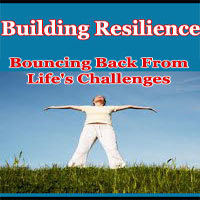


A Journey To Better Health

The transition to a gluten-free lifestyle represents a significant change that can be prompted by health concerns, including gluten sensitivity, celiac disease, or a desire for overall well-being. This shift in dietary habits can seem daunting at first, but with the right guidance and strategies, it can lead to improved health and a renewed relationship with food. In this article, we will explore the process of transitioning to a gluten-free lifestyle and provide tips to help you navigate this journey effectively.
1. Understand Gluten: Before embarking on your gluten-free journey, it's essential to comprehend what gluten is and where it's commonly found. Gluten is a protein present in wheat, barley, rye, and their derivatives. This means it's abundant in products like bread, pasta, and many baked goods.
2. Assess Your Reasons: Determine the driving factors behind your decision to transition to a gluten-free lifestyle. Whether it's due to a medical condition like celiac disease or non-celiac gluten sensitivity, or a choice for improved well-being, having clarity about your motivation can help you stay committed to the change.
3. Consult A Healthcare Professional: If you suspect you have a gluten-related medical condition, consult a healthcare professional for testing and diagnosis. They can provide guidance on the necessity of a gluten-free lifestyle and any specific dietary restrictions.
4. Read Labels Carefully: Effective label reading is essential for identifying gluten-free foods. Look for products that are explicitly labeled as "gluten-free." Also, educate yourself about potential hidden sources of gluten in ingredient lists.
5. Embrace Naturally Gluten-Free Foods: Naturally gluten-free foods include fruits, vegetables, lean proteins, and gluten-free grains like rice and quinoa. These items form the foundation of a nutritious gluten-free diet.
6. Stock Your Kitchen: Ensure your kitchen is well-stocked with gluten-free essentials. This includes gluten-free grains, gluten-free flours for baking, gluten-free pasta, and a variety of gluten-free snacks.
7. Experiment With Recipes: Transitioning to a gluten-free lifestyle provides an opportunity to explore new recipes and culinary techniques. Experiment with gluten-free flours and discover new flavors and textures that are unique to this way of eating.
8. Be Cautious Of Cross-Contamination: Cross-contamination can be a challenge, especially if you share a kitchen with gluten-eating family members. It's crucial to avoid any accidental contact between gluten and gluten-free foods. Implement dedicated kitchen utensils and thoroughly clean surfaces.
9. Plan And Prepare Meals: Meal planning and preparation are key to a successful transition. Set aside time each week to plan your gluten-free meals, create shopping lists, and prepare ingredients in advance. This practice simplifies your daily routine and reduces the risk of accidental gluten exposure.
10. Seek Support: Don't go through the transition alone. Seek support from online communities, local support groups, or healthcare professionals who specialize in gluten-related issues. These resources can provide guidance, advice, and emotional support throughout your journey.
The transition to a gluten-free lifestyle is a significant change, but it can lead to improved health, a better relationship with food, and a more conscious approach to eating. By understanding gluten, assessing your reasons for the transition, reading labels carefully, embracing naturally gluten-free foods, and seeking support, you can successfully navigate this journey. Remember to consult with a healthcare professional if you suspect gluten-related health concerns, and stay patient and persistent as you adjust to this new way of eating. With time and practice, the gluten-free lifestyle can become a natural and rewarding part of your overall well-being.






 3. Problem-Solving Skills: Developing problem-solving skills can help you approach stressors with a proactive mindset. Break problems down into smaller, manageable steps and focus on finding practical solutions. This approach can reduce the feeling of helplessness and anxiety.
3. Problem-Solving Skills: Developing problem-solving skills can help you approach stressors with a proactive mindset. Break problems down into smaller, manageable steps and focus on finding practical solutions. This approach can reduce the feeling of helplessness and anxiety.
Paving The Path To Success And Fulfillment
 Creating Realistic Goals
Creating Realistic Goals
Self-Reflection: Start by assessing your current situation, skills, and resources. Consider your strengths and weaknesses. This self-reflection provides a foundation for setting realistic goals.
Specificity: Be clear and specific about what you want to achieve. Vague goals make it challenging to measure progress and stay on course.
Measurable Outcomes: Set criteria for measuring your progress. Define how you will know when you've achieved your goal. Having concrete metrics keeps you accountable.
Attainable Targets: Ensure that your goals are within reach given your current capabilities, resources, and constraints. It's essential to challenge yourself but not set unattainable standards.
Relevance: Ask yourself if the goal aligns with your values, interests, and long-term aspirations. Goals that are meaningful to you are more likely to be pursued with dedication.
A Path To Thriving
 The Role Of Positive Psychology In Resilience
The Role Of Positive Psychology In Resilience
Positive psychology examines the factors that contribute to human happiness, well-being, and optimal functioning. In the context of resilience, positive psychology emphasizes the cultivation of positive emotions, character strengths, and a positive mindset. Here's how positive psychology can aid in building resilience:
Fostering Positive Emotions: Positive psychology emphasizes the importance of cultivating positive emotions such as gratitude, hope, and joy. These emotions can serve as emotional resources during challenging times, promoting resilience.
Identifying Strengths: Positive psychology encourages individuals to recognize and leverage their character strengths. By utilizing these strengths, individuals can overcome adversity more effectively.
Developing A Growth Mindset: Positive psychology emphasizes the power of a growth mindset, which involves viewing challenges as opportunities for growth and learning. This mindset is closely tied to resilience.
Enhancing Psychological Well-Being: Positive psychology interventions, such as mindfulness and gratitude exercises, can improve psychological well-being, which is associated with increased resilience.
Practical Steps For Building Resilience Through Positive Psychology
Cultivate Gratitude: Regularly practice gratitude by acknowledging and appreciating the positive aspects of your life. Keeping a gratitude journal is an effective way to develop this skill.
 Morning Gratitude Ritual: Start your day by reflecting on the things you are grateful for. As you wake up, think about the upcoming day and what you are looking forward to. By setting a positive tone in the morning, you are more likely to carry that sense of gratitude with you throughout the day.
Morning Gratitude Ritual: Start your day by reflecting on the things you are grateful for. As you wake up, think about the upcoming day and what you are looking forward to. By setting a positive tone in the morning, you are more likely to carry that sense of gratitude with you throughout the day.
Evening Reflection: Before going to bed, take a moment to reflect on your day and identify the positive experiences or moments that made you feel grateful. This practice allows you to go to sleep with a positive mindset, promoting better sleep and reducing nighttime stress.
Thank-You Notes: Expressing gratitude to others is a powerful practice. Write a thank-you note to someone who has made a difference in your life. It could be a friend, family member, coworker, or even a stranger who showed kindness. Not only does this practice benefit you, but it also strengthens your relationships.
Gratitude Walk: During your daily walk or commute, practice mindfulness and gratitude. Observe the beauty of nature, the kindness of others, or the simple pleasures you encounter. As you walk, internally acknowledge these aspects of life for which you are grateful.
Mealtime Gratitude: Incorporate gratitude into your meals by taking a moment before eating to appreciate the nourishment and the people you are sharing the meal with. This practice can lead to more mindful eating and the enjoyment of your food.
 Mindfulness Meditation: One of the most effective ways to find tranquility is through mindfulness meditation. This ancient practice encourages individuals to be fully present in the moment, without judgment. By focusing on their breath and observing their thoughts and emotions, people can achieve a state of calm and serenity. Even just a few minutes of mindfulness meditation each day can provide a sense of tranquility and a break from the daily hustle.
Mindfulness Meditation: One of the most effective ways to find tranquility is through mindfulness meditation. This ancient practice encourages individuals to be fully present in the moment, without judgment. By focusing on their breath and observing their thoughts and emotions, people can achieve a state of calm and serenity. Even just a few minutes of mindfulness meditation each day can provide a sense of tranquility and a break from the daily hustle.
Nature Retreats: Nature has a remarkable ability to soothe the mind and replenish the soul. Taking a break from the stress-filled world to spend time in nature can be a profound source of tranquility. Whether it's a walk in the woods, a day at the beach, or simply sitting in a park, connecting with nature can offer a sense of peace that is hard to find elsewhere.
Digital Detox: The constant connectivity to technology can be a significant source of stress. Taking time for a digital detox, where you disconnect from your devices and immerse yourself in the offline world, can be a refreshing way to find tranquility. It allows you to be fully present in your surroundings and engage in meaningful, real-world interactions.
Simplicity And Minimalism: Sometimes, simplifying your life and embracing minimalism can lead to tranquility. Reducing clutter in your physical space and streamlining your commitments can create a sense of calm.
Nurturing Mind And Emotions
 The Modern Mental Health Landscape
The Modern Mental Health Landscape
Mental health issues such as anxiety, depression, and stress are increasingly prevalent in our fast-paced and often stressful modern lives. While conventional treatments like psychotherapy and prescription medications remain vital, many individuals seek complementary approaches to manage their mental well-being. Herbal remedies offer a gentler and more natural alternative.
Herbal Remedies For Mental Health
Several herbs have gained popularity for their potential to support mental health. Here are a few notable examples:
St. John's Wort (Hypericum Perforatum): St. John's Wort is renowned for its antidepressant properties and is commonly used to alleviate symptoms of mild to moderate depression.
Lavender (Lavandula Angustifolia): Lavender's soothing aroma is celebrated for its calming effects, reducing anxiety and improving sleep quality.
Ashwagandha (Withania Somnifera): An adaptogenic herb, Ashwagandha can help the body adapt to stress, improve resilience, and promote emotional balance.
Passionflower (Passiflora Incarnata): Passionflower is used to reduce anxiety and insomnia, promoting relaxation and emotional well-being.
Valerian (Valeriana Officinalis): Valerian root is a natural sedative, often used to relieve anxiety and improve sleep quality.
Chamomile (Matricaria Chamomilla): Chamomile is known for its calming properties and is frequently used to reduce stress and anxiety.
The Power Of Collective Strength
 Social Support: Community provides a valuable safety net of social support. Friends, family, and neighbors can offer emotional and practical assistance in times of need, providing a sense of belonging and care.
Social Support: Community provides a valuable safety net of social support. Friends, family, and neighbors can offer emotional and practical assistance in times of need, providing a sense of belonging and care.
Sense Of Belonging: Feeling like a part of a community fosters a sense of belonging. This connection can be a powerful source of motivation and hope, promoting resilience in the face of adversity.
Shared Experiences: In a community, individuals often share similar experiences and challenges. This commonality creates a strong bond, as members can relate to each other's struggles and provide empathetic support.
Collective Problem-Solving: Communities are often better equipped to problem-solve and adapt to change collectively. Members can pool resources and ideas to find solutions to shared challenges.
Strategies For Building Resilience Through Community
Connect With Neighbors: Get to know your neighbors and build a sense of community in your local area. This support network can be invaluable during emergencies and everyday life.
Participate In Community Activities: Engage in community events, clubs, or organizations. These activities not only foster a sense of belonging but also provide opportunities to develop new skills and build social connections.
Online Communities: In today's digital age, online communities can be just as powerful as physical ones. Join online support groups, forums, or social networks where you can connect with like-minded individuals facing similar challenges.